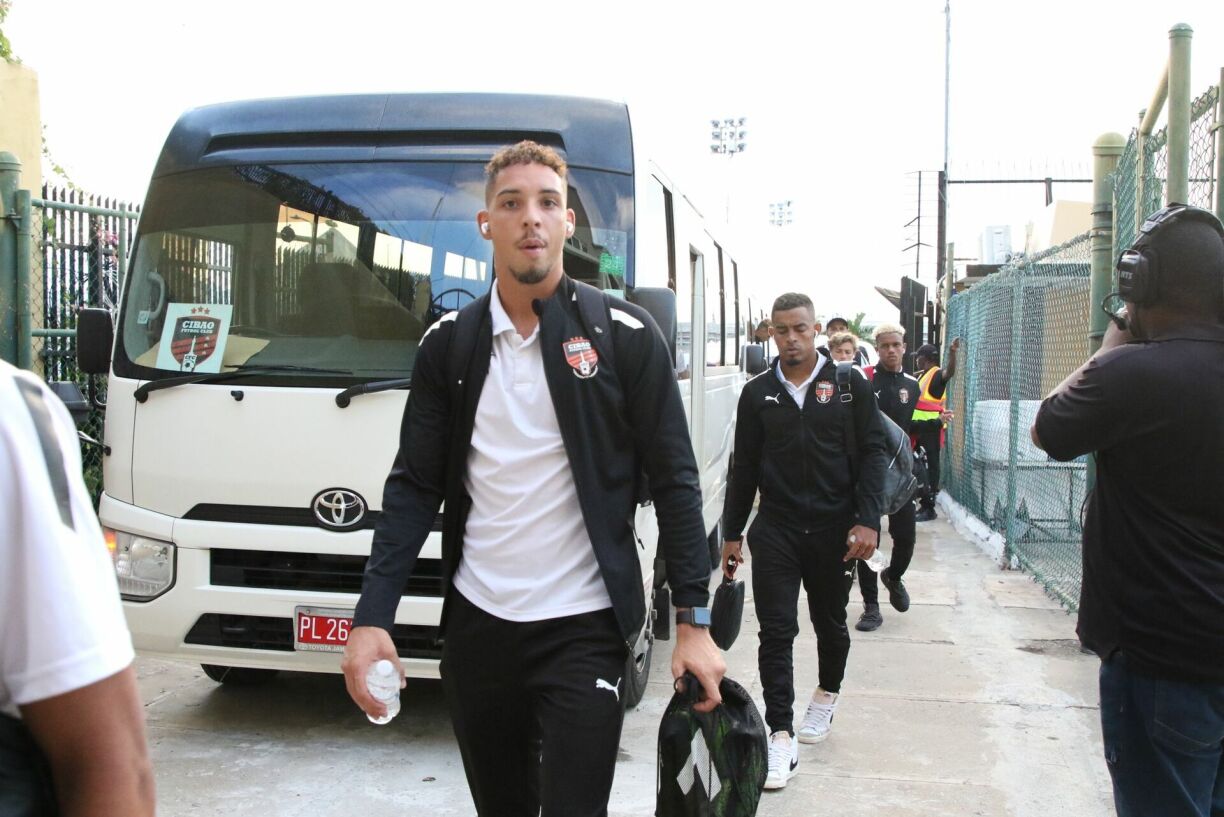
Almost a year on, he reflects on the state of Luxembourgish football and some of the crucial differences he has experienced since moving to the Caribbean.
Christopher González is half Luxembourgish. He has played for five different clubs in the country, the most notable being BGL Ligue team UNA Strassen from 2021 until 2023.
However, after climbing up the Grand Duchy’s football pyramid, in early 2023 he embarked on a sudden move to the other side of the world. He was officially announced as a played for Cibao, a team few in Europe have heard of, on 15 January.
Yet the move did not represent a step back: it was a fitting continuation of his ambitious sporting career. “My mother is from the Dominican Republic,” González said. “I’ve been in contact with Cibao for six or seven years now. I trained for them when I was 18 years old and had try-outs while I was on holiday there.”
“Now, in the last two or three years, they have called me at the end of every season to see if I was interested in joining them. This was the first time I had given consideration to it as I was looking for a new challenge. I wanted to get out of Luxembourg to get new experiences.”
Now 27 years old, González has found success in his first full season overseas. His team were crowned Dominican champions, while he also had a chance to perform in the continental Champions League’s qualification tournament, which consists of a preliminary group stage for Dominican teams. All things considered, is it harder to find success at his new club than in Luxembourg?
“I think that Hesperange (or Dudelange if they had their top, top players) could be better than the top tiers of the Dominican league. But compared to my team [and two other outstanding teams in the Dominican Republic], it would be a difficult match between those.”
“So the only team who could beat any team in the Dominican Republic would be Hesperange. The other teams would find it difficult because the football is very different over here.”
That is in no small part thanks to a higher level of time and commitment invested in the local football scene. “In Strassen, I had a semi-professional contract, I was playing for Strassen while working on the side. The Dominican league is fully professional.”
The CONCACAF Caribbean Cup has arguably posed the biggest challenge for González since moving to the country 11 months ago. The level of opposition tended to be even higher across the region than within the Dominican top flight.
“We played two teams from Jamaica, one from the Dominican Republic and one from Suriname. We first lost to the Surinamese team [Robinhood FC] in Paramaribo, then travelled to Jamaica, we lost one game there by 2-1, and the last game we played at home. We won 2-1 and it was the only game in the Caribbean Cup that I played.”
“And of course the level was much higher in the Caribbean Cup than in the league, that’s for sure. The Jamaican teams and the team from Suriname were really good. The Jamaican teams had big players and played fast football, while in Suriname they had smaller players but they ran a lot and played really well with the ball, so they play a different kind of game than we do in the league.”
Exposed to the glamour and different cultural aspects of continental competitions, it would be easy for González to forget about the BGL Ligue. But he has not lost interest in the Luxembourgish football landscape.
At one point in the interview, he mentioned Differdange’s recent impressive run of form, while he also referred to several acquaintances in the country from his previous adventures.
“I have a lot of friends who play in the Luxembourgish league and the national team too - of course, I support them, and I always watch their games.”
A sentence which begs the inevitable question for all those who have been following the national team’s fairy-tale rise over the recent Euro 2024 qualification campaign – can Luxembourg triumph in the two do-or-die play-off matches coming up in March?
“I think the chance is there, hopefully. We’ve got a very good team and nothing is impossible, so I think we can do it.”
Qualification for a major international tournament would undoubtedly send shockwaves through the country, and help raise some much needed attention on domestic football besides the national team.
The Red Lions sell out the majority of the games at the Stade de Luxembourg, which is a perfect first step. However, attendance numbers in the league are often in the low three-digits.

“It’s sad to say that people in the Dominican Republic like football more than people in Luxembourg. They are much more passionate, they come with banners and their own songs for games. They follow each player, they want autographs from the players, so there’s a lot more passion than in Luxembourg.”
“Even if it’s basketball, or baseball (or football), if there’s a team in Santiago, Cibao, and you live there, you will go [to games] for your team, no matter the sport.”
The Latin American passion González mentions has an effect on the pitch as well as off the pitch. He proceeds to pick out some of the most interesting differences between the ways of playing in the two countries, presenting an interesting overlap between football heritage and cultural characteristics.
“The difference is, Luxembourgish clubs play German, European football. There’s a lot of tactics, we don’t take risks because the coach wants us to stay calm, so there’s a lot of games [that end in] 0-0, 1-1 – not a lot of goals. The Dominican league is much stronger in the sense that players want to go forward, they run faster, jump higher, they battle for every ball, they don’t want to pass the ball around in defence 3-4 times.”
“This is offensive football, we go forward and go for the win. In Luxembourgish football there is a lot of tactics and strategy.”
The consequence, according to the goalkeeper, is that the Dominican league is more entertaining to watch.
The concept of having a professional league in Luxembourg is something a number of teams and their investors have given thought to, especially over the past few years. Several ex-players have expressed their opinions on the subject after they getting their own first-hand experiences of what professional football really feels and looks like.
González, like many others, believes the league isn’t far from making the step. The most important changes to be made lie with the league’s own plans in critical areas such as marketing and broadcasting.
“The level is good, we have a lot of good players and teams [in Luxembourg]. They have to improve the league in every sort of marketing, with real livestreams and cameras, commentators, so people from abroad watching the games also know who’s on the ball, or which players are playing. These little things make a big difference.”
“We have everything to become professional.”
What happens to the league’s future as the country’s footballing landscape continues to evolve remains to be seen. The fate of the national team also hangs in the balance, with the Red Lions on the verge of qualification for the European Championships in Germany.
One thing we can expect is to hear more from González in the future. The shot-stopper plans to return to Luxembourg at some point in his playing career, after previous stints with Racing, Sandweiler, Red-Black Égalité, Weiler-la-Tour and Strassen.
Some answers have been lightly edited for clarity.